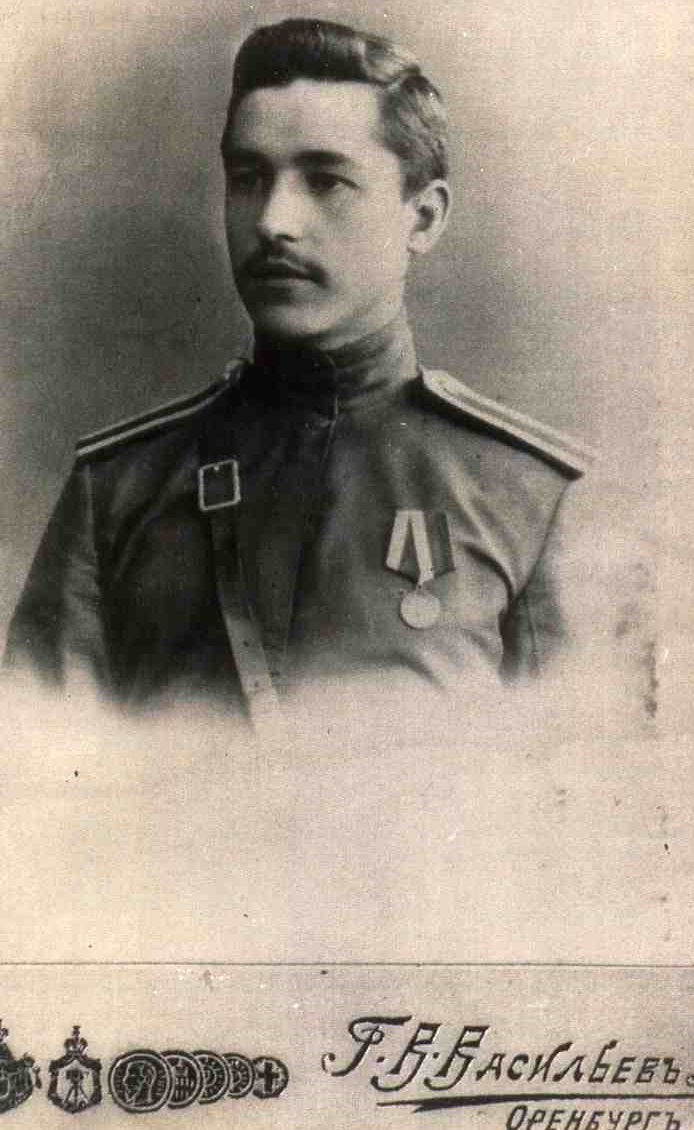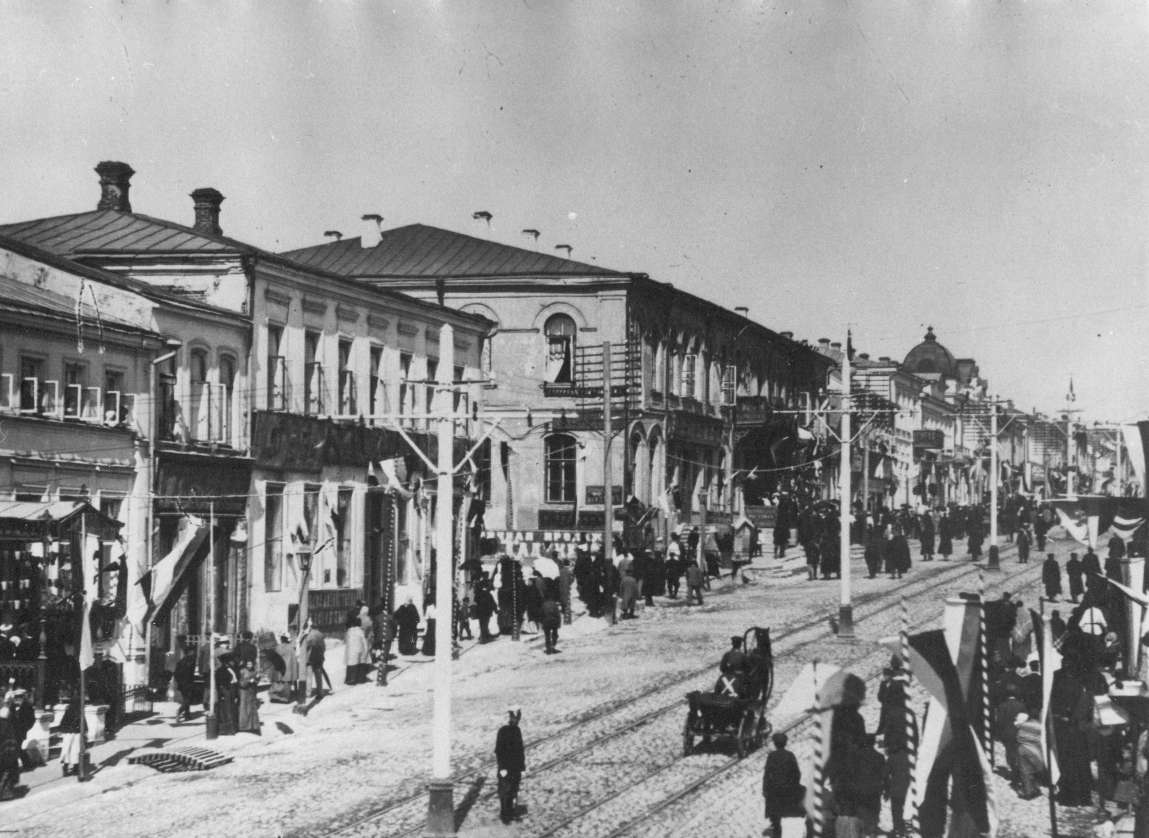|
Dāvids Sīmansons
Dāvids Sīmansons (4 April 1859 – 13 January 1933) was the first commander-in-chief of the Latvian National Armed Forces, Latvian Army. He was also a general of the Latvian Land Forces, Latvian Army, major general of the Imperial Russian Army and the Former Ministry of Defence (Latvia), Minister of War of Latvia. He was a recipient of the Commander of the Order of Lāčplēsis. Biography Sīmansons was born in Valmiera Parish, in a family of agricultural workers. He graduated from Limbaži district school.Senior officers of the Latvian Army (1918-1940) '' Biographical Dictionary '', Riga: LVVA, Publishing House "Nordisk" In 1880, he began his military service by voluntarily joining the Imperial Russian Army on the 115th Vyazma Infantry Regiment. During his service, he was sent to a Junker (Russia), Junker school, after graduation of which he obtained the rank of an officer. After training, he returned to the Vyazma Infantry Regiment. In 1894 he graduated from the General Staff ... [...More Info...] [...Related Items...] OR: [Wikipedia] [Google] [Baidu] |
Junker (Russia)
The term Junker ( (''yunker'')) had several meanings in Imperial Russia. The Russian substantive ''Yunker'' is derived from the German noun ''Junker'', where it means "young lord". *Yunker (ru: юнкер) was the rank for a volunteer at military service (ru: вольноопределяющийся, ''volnoopredelyayushchiycya'', de: One-year volunteer) in the Imperial Russian Army in 19th and 20th centuries. **Fanen-yunker/yunker (ru: фанен-юнкер/юнкер) was a military rank for junior officers of dvoryan descent since 1902. *Kamer-yunker (ru: камер-юнкер; cf. German ''Kammerjunker'') was a courtier title defined in the Table of Ranks, generally equating to ''valet de chambre'' or Groom of the Chamber. *Yunker was a term for students of any military or junker school in between 1864 and 1917. Junker schools Junker schools in Russia were introduced in 1864. They were usually located next to district headquarters in a given region. Junker schools pre ... [...More Info...] [...Related Items...] OR: [Wikipedia] [Google] [Baidu] |
Jānis Balodis
Jānis Balodis (20 February 1881 – 8 August 1965) was an army general, Commander-in-Chief of the Armed Forces of Latvia (1919–1921), Minister of War (1931–1940), and a politician who was one of the principal figures during the Latvian War of Independence and the dictatorship of Kārlis Ulmanis, when he was officially the number two of the regime as the Minister of War, Deputy Prime Minister and Vice President. Early life and education Jānis Balodis father was historian and teacher Voldemārs Balodis. In 1898, he joined the Imperial Russian Army and served in Kaunas. From 1900 until 1902 he studied at the Vilnius War School. Military service Russo-Japanese War and World War I From November 1904 until July 1905, he participated in the Russo–Japanese War and was seriously wounded in the arm. From 1906 until 1914, Balodis served in Vilnius. At the beginning of World War I he was lightly wounded during the battles in East Prussia, for which he received a number of decorat ... [...More Info...] [...Related Items...] OR: [Wikipedia] [Google] [Baidu] |
West Russian Volunteer Army
The West Russian Volunteer Army or Bermontians was a pro-German White Russian military formation in Latvia and Lithuania during the Russian Civil War from November 1918 to December 1919. History The , unlike the pro- Entente Volunteer Army in Southern Russia, was supported and in fact put together under German auspices. The Compiègne Armistice of November 1918, in article 12, stipulated that troops of the former German Empire would remain in the Baltic provinces of the former Russian Empire to help fight against Bolshevik advances and that such German units were to withdraw once the Allies determined that the situation was under control. The order to withdraw was given after signing of the Treaty of Versailles in June 1919. However, only a small portion of the Freikorps in the Baltic retired in response to the Allies' order; the rest remained under the leadership of the German Army General Rüdiger von der Goltz. To avoid casting blame on Germany and infuriating the Al ... [...More Info...] [...Related Items...] OR: [Wikipedia] [Google] [Baidu] |
Jugla, Riga
Jugla is a neighbourhood of Riga, the capital of Latvia. It is located in the Vidzeme Suburb, west of the Lake Jugla and southeast of the Lake Ķīšezers. Jugla is bordered by Čiekurkalns, Mežciems and Teika to the west, Dreiliņi to the southwest, Brekši Brekši is a neighbourhood of Riga, the capital of Latvia Latvia, officially the Republic of Latvia, is a country in the Baltic region of Northern Europe. It is one of the three Baltic states, along with Estonia to the north and Lithuania ... to the southeast and Bukulti to the east. Jugla is the location of Strazdumuiža Manor, first mentioned in 1528. References Neighbourhoods in Riga {{Riga-stub ... [...More Info...] [...Related Items...] OR: [Wikipedia] [Google] [Baidu] |
Jorģis Zemitāns
Jorģis Zemitāns (23 February 1873, Skrīveri parish – 16 January 1928, Riga) was an army officer and commander of the Latvian Northern Brigade during the Latvian War of Independence. Biography Jorģis Zemitāns was born on 23 February 1873 in Skrīveri parish, Livonia Governorate. In 1892 he graduated Realschule in Mitau (Jelgava) and joined the army of the Russian Empire in 1892 and completed his military education at the Vilnius Military Academy in 1897. He became an officer in 116th. Malojaroslavec infantry regiment which was stationed in Riga. World War I When World War I started in 1914 he was promoted to captain and together with the whole regiment deployed to the front. Together with XX Army corps he fought in East Prussia. In January 1915, the entire XX Army corps was destroyed in the Augustów forest's and Zemitāns was taken Prisoner of War in February 1915. He spent the remainder of the war in the German POW camps and was released from captivity in Decem ... [...More Info...] [...Related Items...] OR: [Wikipedia] [Google] [Baidu] |
Pavel Bermondt-Avalov
Prince Pavel Rafailovich Bermondt-Avalov () or Prince Avalov ( – 27 December 1973) was a Russian officer and Cossack adventurer-warlord. He is best known as the commander of the West Russian Volunteer Army which was active in present-day Latvia and Lithuania in the aftermath of World War I. Born into a Georgian-Russian family, Avalov received a musical education in Warsaw and joined the Russian Imperial Army's Baikal Cossacks host as a musical conductor. He participated in the Russo-Japanese War, during which he was awarded the Cross of St. George. After converting to Orthodoxy, he was transferred to the Ussuri Cossacks and was promoted to cornet. During the First World War, Avalov worked as a personal adjutant for Pavel Mishchenko, serving in Eastern Prussia and Galicia. Throughout his military career, Avalov was injured seven times. After being demobilized in 1917, Avalov became involved in the Russian Civil War as an ardent supporter of the White Army. After defen ... [...More Info...] [...Related Items...] OR: [Wikipedia] [Google] [Baidu] |
Oryol
Oryol ( rus, Орёл, , ɐˈrʲɵl, a=ru-Орёл.ogg, links=y, ), also transliterated as Orel or Oriol, is a Classification of inhabited localities in Russia, city and the administrative center of Oryol Oblast, Russia, situated on the Oka River, approximately south-southwest of Moscow. It is part of the Central Federal District, as well as the Central Economic Region. First founded as a medieval stronghold of the Principality of Chernigov, Oryol was part of Grand Duchy of Lithuania, Lithuania in the Late Middle Ages, late medieval period, and then Russia since the early modern period. It has served as the seat of regional administration since 1778. The city is particularly known for the infamous Oryol Prison, former prison for political and war prisoners of Russian Empire, Tsarist Russia, the Soviet Union and Nazi Germany. History Early history While there are no historical records, archaeological evidence shows that a fortress settlement existed between the Oka River and ... [...More Info...] [...Related Items...] OR: [Wikipedia] [Google] [Baidu] |
Vitebsk
Vitebsk or Vitsyebsk (, ; , ; ) is a city in northern Belarus. It serves as the administrative center of Vitebsk Region and Vitebsk District, though it is administratively separated from the district. As of 2025, it has 358,927 inhabitants, making it the country's fourth-largest city. It is served by Vitebsk Vostochny Airport and Vitebsk Air Base. History Middle Ages Vitebsk developed from a river harbor where the Vićba River (Віцьба, from which it derives its name) flows into the larger Western Dvina, which is spanned in the city by the Kirov Bridge. Archaeological research indicates that Baltic tribes had settlements at the mouth of Vitba. In the 9th century, Slavic settlements of the tribal union of the Krivichs replaced them. According to the '' Chronicle of Michael Brigandine'' (1760), Princess Olga of Kiev founded Vitebsk (also recorded as Dbesk, Vidbesk, Videbsk, Vitepesk, or Vicibesk) in 974. Other versions give 947 or 914. Academician Boris Rybakov an ... [...More Info...] [...Related Items...] OR: [Wikipedia] [Google] [Baidu] |
17th Infantry Division (Russian Empire)
The 17th Infantry Division (, ''17-ya Pekhotnaya Diviziya'') was an infantry formation of the Russian Imperial Army The Imperial Russian Army () was the army of the Russian Empire, active from 1721 until the Russian Revolution of 1917. It was organized into a standing army and a state militia. The standing army consisted of Regular army, regular troops and .... Organization *1st Brigade **65th Infantry Regiment **66th Infantry Regiment *2nd Brigade **67th Infantry Regiment **68th Infantry Regiment *17th Artillery Brigade Commanders *March 1915-April 1917: Pyotr Telezhnikov References {{Russian Empire Divisions Infantry divisions of the Russian Empire Military units and formations disestablished in 1918 Kholm Governorate ... [...More Info...] [...Related Items...] OR: [Wikipedia] [Google] [Baidu] |
Order Of St
Order, ORDER or Orders may refer to: * A socio-political or established or existing order, e.g. World order, Ancien Regime, Pax Britannica * Categorization, the process in which ideas and objects are recognized, differentiated, and understood * Heterarchy, a system of organization wherein the elements have the potential to be ranked a number of different ways * Hierarchy, an arrangement of items that are represented as being "above", "below", or "at the same level as" one another * an action or inaction that must be obeyed, mandated by someone in authority People * Orders (surname) Arts, entertainment, and media * ''Order'' (film), a 2005 Russian film * ''Order'' (album), a 2009 album by Maroon * "Order", a 2016 song from '' Brand New Maid'' by Band-Maid * ''Orders'' (1974 film), a film by Michel Brault * "Orders" (''Star Wars: The Clone Wars'') Business * Blanket order, a purchase order to allow multiple delivery dates over a period of time * Money order or postal orde ... [...More Info...] [...Related Items...] OR: [Wikipedia] [Google] [Baidu] |
Golden Weapon For Bravery
The Gold Sword for Bravery () was a Russian award for bravery. It was set up with two grades on 27 July 1720 by Peter the Great, reclassified as a public order in 1807 and abolished in 1917. From 1913 to 1917 it was renamed the Saint George Sword (''Георгиевское оружие'') and considered one of the grades of the Order of St. George. Gallery File:Fedor Fedorovich von Berg (by J. M. Strzałecki).jpg, Field marshal Friedrich W. Rembert von Berg with the Gold Sword for Bravery File:Александр II стоит в мундире. 1878~1879г Левицкий(Невский28) (2) X e1.jpg, Tsar Alexander II of Russia with the Gold Sword for Bravery File:Kramskoy Alexander III.jpg, Tsar Alexander III of Russia with the Gold Sword for Bravery File:Mannerheim i rysk uniform.jpg, Baron Carl Gustaf Emil Mannerheim Baron Carl Gustaf Emil Mannerheim (, 4 June 1867 – 27 January 1951) was a Finnish military commander, aristocrat, and statesman. He served as t ... [...More Info...] [...Related Items...] OR: [Wikipedia] [Google] [Baidu] |


